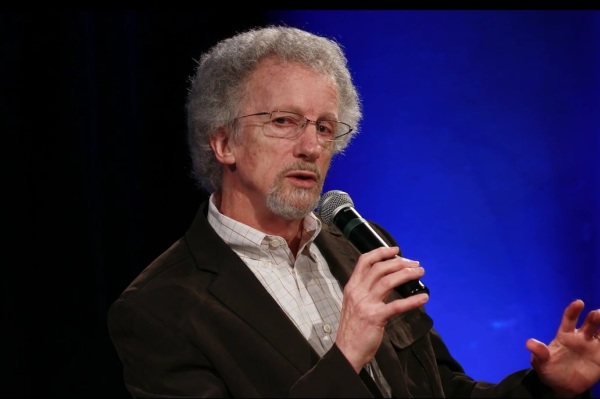How Vulnerability Can Make Your Ministry More Effective
There are people in your church who don't want you to be vulnerable. They want to put a halo on you and pretend you're never tempted. They want to believe you're just a little bit above the crass realities of life. But that belief denies a truth of life. It'll also keep us from having full impact in other people's lives.
Sometimes pastors will succumb to the pressure of maintaining a more-than-human image. But don't do it. Don't let people put you on a pedestal. It's dishonest. It's hypocritical. And when the inevitable truth comes out, people become disillusioned because they believed the unrealistic image.
I remember reading the story of the British explorer Captain James Cook who discovered Hawaii. When he first landed in Hawaii, the natives treated him like a god, and in fact, proclaimed him to be a deity. He did nothing to discourage that image. In fact, he accepted it. When he left, he sailed back out in the sea into a heavy storm that forced him to turn back to the island. When the natives saw that he had come back because of the storm, they felt betrayed. They thought no god would fear a storm, so they attacked the ship and killed Captain Cook. Vulnerability can be risky business.
Why should you as a pastor make an effort to be open and honest about your weaknesses?
1. It's emotionally healthy. James 5:16a says, "Therefore confess your sins to each other and pray for each other so that you may be healed." (NIV) Wearing a mask is unhealthy. It requires enormous amounts of energy. It produces a great amount of tension and stress. It can even produce depression. Pastors who worry about maintaining an image are asking for burnout.
Revealing your feelings is the beginning of healing. In fact there are some weaknesses in your life that won't get better until you confess them to your own church.
2. It's spiritually empowering. James 4:6b says, "God opposes the proud but gives grace to the humble." (NIV) You know we cannot minister without the grace of God. So the question then becomes, how do we get grace? How do we get the grace we need to pastor the churches God called us to pastor?
One answer: By humbling ourselves. God gives grace to the humble. God delights in blessing us when we understand how weak we really are. And the greater you recognize your weaknesses, the greater the Holy Spirit can help you.
Zachariah 4:6b says, "Not by might nor by power, but by my Spirit." (NIV) Every pastor who wants God's power in his life and ministry needs to remember this verse – that power comes through weakness.
3. It is relationally endearing. Vulnerability draws us closer to other people. When we're vulnerable and authentic, people gravitate toward us. Paul tells us in 1 Thessalonians 2:8a: "We loved you so much that we were delighted to share with you not only the gospel of God but our lives as well." (NIV) Paul shared his life with people. He exposed his heart to them. He didn't keep his distance. He related to people on a personal level.
When you're honest, people love to be around you. People don't relate to perfection. They relate to humanity.
Plus, when you share a personal pain with the people in your church, you will discover a new level of fellowship that you have not known previously. Some of the loneliest people I've met are pastors. I think it's because they're afraid of being vulnerable.
Vulnerability also encourages others to throw away their masks. They realize it's safe to come out of hiding. If you can be honest, they can be honest. We need to let people know we're struggling with them, and we need to let them know how we're finding victory.
4. It is enhances your leadership. Vulnerability will make a more credible leader. Every leader has weaknesses and how you handle them will determine whether they help you or hinder you as a leader. If you understand and accept your natural limitations, they become useful to you. But if you ignore them, they become embarrassments.
People want to follow a leader who is real. The more honest you are about your weaknesses, the more you're perceived as being real. The more real you are, the more credibility you have. The more credibility you have, the easier it is for you to lead and the more willing people are to follow you. Vulnerability enhances leadership rather than destroying it.
5. It increases the impact of your preaching. 2 Corinthians 6:11a says, "We have been very open in speaking to you Corinthians." (GW) Paul demonstrates what it's like to be vulnerable in our preaching. He says when he was speaking to the Corinthians he was speaking openly; he was frank.
It used to be in sermon preparation I'd ask myself, "What is the most powerful way to say this point?" I no longer ask that question. I now ask myself, "What is the most personal way to present this point?" I have discovered that the most personal way is the most powerful way. I'm much more effective as a witness than I am as an orator. When I speak out of the overflow of experience, then I speak with conviction. And conviction moves people.
_______________________________________________
Rick Warren is the founding pastor of Saddleback Church in Lake Forest, Calif., one of America's largest and best-known churches. In addition, Rick is author of the New York Times bestseller The Purpose-Driven Life and The Purpose-Driven Church, which was named one of the 100 Christian books that changed the 20th Century. He is also founder of Pastors.com, a global Internet community for ministers. Copyright 2005 Pastors.com, Inc. Used with permission. All rights reserved.





















